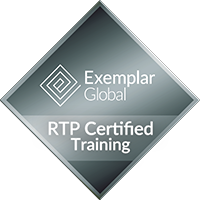| Approx Course Duration *: | Equivalent to 32 Hours (Approx 4 days full-time study) |
| Access to Course Content: | 18 Months from the date of enrolment |
| Qualification/s: | Developing HACCP Plans |
| Competency Units: |
Exemplar Global (HP) Developing HACCP Plans
|
| Certificate Type: |
Certificate of Attainment - TPECS |
| CPD Hours: | 32 Continuing Professional Development Hours |
HACCP Practitioner
With your qualification, you will become an internationally recognized HACCP Practitioner with a comprehensive understanding of the requirements for a Hazard Analysis Critical Control Point (HACCP) system and be able to apply what you learn anywhere in the world, across industry sectors.
- Promote yourself as a HACCP Practitioner
- Promote yourself as a HACCP External Auditor when accompanied by a Lead Auditor competency
- Perform HACCP audits on behalf of Conformity Assessment Bodies (CAB’s) or Certification Bodies (CB’s), when accompanied by a Lead Auditor competency
- Assess an organizations HACCP system against CODEX and other requirements and be an authority for organizations in determining the extent of conformance of their HACCP system
Exemplar Link access
This course gives you access to Exemplar Link (brought to you by Exemplar Global). Once you register on Exemplar Link you will be able to access:
- Access to Exemplar Global Webinars and Online events
- Access to Exemplar Global online resources, including the Auditor Online Newsletter and regular Job Board notifications
- Access to the social community of graduates
- Work Style Behavioural Assessment - if you're wondering how your unique personality traits manifest on the job as an auditor!
The Developing HACCP Plans (Exemplar Global – HP) course is internationally recognized. It is 100% online, and you complete at your own pace.
| Units covered: | |
|---|---|
| Introduction to HACCP | Legislation and Ethics |
| The Five Preliminaries | The Seven Principles (Principle 1) |
| The Seven Principles (Principles 2, 3 and 4) | The Seven Principles (Principles 5, 6 and 7) |
The courses are broken up into a series of modules and the assessment is completed as part of the learning, step-by-step, module-by-module.
Practice Quizzes
For each module, you view the content and then do the practice quizzes as many times as you like. These are marked instantly by the learning management system so you know exactly which content you may need to review further. This gets you confident and prepared to do the final module assessment.
Module Assessment
Once you are confident that you have a thorough understanding of the content you can move on to the module assessment.
The module assessments are the same format as the practice quizzes so you know exactly what you need to do. You are given three attempts at each assessment, after which it is automatically locked for 24 hours. Once this review period has ended the assessment is unlocked for another three attempts.
Workbook Assessments
To conclude this course there is a practical assessment workbook for upload and submission. The workbook includes practical activities such as hazard analysis, determining critical control points, monitoring requirements, and corrective actions.
We have found that students with all types of learning styles find this an effective way to receive their qualifications.
Course details:
-
Online Self-Paced
-
Approx 32 hours full-time study*
-
Exemplar Global International/Industry Recognized
-
No prerequisites required
* All ATOL courses are delivered in such a way you can work through them at your own pace, the actual time to complete the training may change depending on the individual learners' experience and/or learning style



















 NO PREREQUISITES
NO PREREQUISITES